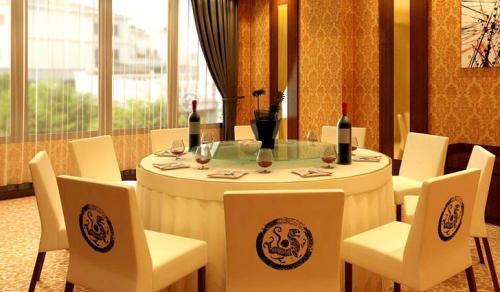Restaurant charge does not charge?
The restaurant is not allowed to charge room charges, is welcome news, but there are still many voices of discontent, the fact what exactly is it? Is there are measures under the policy it? Puyang Linshi Medical Supplies Co., Ltd. , https://www.linshimedicals.com
Point of view (consumer): restaurant charges are very impressive
On March 15th, the citizen Mr. Wang came to dine with his friends at the Wanda store of the Yuxiang People's House. After he had indicated with the waiter that he needed a private room, he was asked to pay 100 yuan for tea. "We have a total of 7 or 8 people, all of whom are friends. We really want to find a good meeting room to talk about for a while. At the beginning, they can do it," Mr. Wang said. "But I am not asking the waiter to allow you to charge for the private room. After this statement, they made a 180-degree turn, saying first that this was not called a private room fee. This was called the fee for tea. Later, the person in charge came and said clearly and directly. This is a private room fee, especially aggrieved."
Mr. Wang said angrily that afterwards, rice was not eaten well. “This kind of behavior is simply consuming consumer goods,†Mr. Wang said. However, after considering the cost of rights protection, he did not choose to complain about rights protection.
Angle 2 (restaurant): Tea breaks are equivalent to private room charges
Yesterday, a reporter from the Beijing Morning Post visited the Wanda store of the Yuxiang People's Store and noticed that there were advertisements for all kinds of dining preferences, special dishes, etc. on the glass wall of the store. However, there was no advertisement mentioning that there was a need to pay 100 yuan for tea in the room. A fee.
Going to the front desk, the reporter stated to the staff as a customer the booking room. After informing the other party of the number of meals and the time, the staff member suddenly stated that it was necessary to pay 100 yuan for the tea room charge. “We will give you a pot of tea and a fruit plate,†said the staff member. “We will give you a pot of tea and a fruit plate.†The staff member said and took out the menu. “At present, there are no Dahongpao and Zhengshan races. The other ones are optional. The reporter saw on the menu that the Dahongpao and Zhengshan races are the most expensive of the menus, with a price of 68 yuan. "Don't pay this tea service fee, don't we drink tea or not?" "No, the company stipulates that as long as you use the private room, you must pay for the tea service fee. This is the case for all the shops of the Luzhou people. This is equivalent to the private room fee. "" said the staff.
Angle 3 (lawyer): Private room fees are illegal
According to lawyer Zhang Xuedong of Beijing Licheng Law Firm, the fees charged by the hotel for the private room and the tea room have violated the relevant laws and regulations of the "Contract Law" and the newly amended "Consumer Protection Law". The Consumer Protection Law stipulates consumption. The person has the right to fair trade and has the right to refuse the operator to enforce the transaction. Consumers are obliged to provide dining facilities and eating facilities free of charge when they are dining. If the operator charges fees for private rooms and tea, which violates the principle of fair trade, it is a performance of forced transactions. Consumers have the right to refuse to pay. The corresponding fee.
According to lawyer Zhang, if consumers have already paid for the relevant fees, they can maintain their rights and interests by negotiating with the operators, requesting consumer association mediations, filing complaints with the relevant administrative departments, and suing the people's courts.
According to lawyer Zhang, because operators charge consumers a small amount each time, for a relatively small number of consumer disputes, many consumers are unwilling to protect their rights for many reasons after measuring the cost of rights protection. Can only endure in silence. The amended “Consumer Protection Law†stipulates that consumer associations can protect consumer’s lawful rights and interests, support litigation of consumers who have been harmed, or institute public interest litigations in accordance with consumer law, which can protect the legitimate rights and interests of consumers as much as possible. Reduce the cost of consumer rights protection, which is a major highlight of the amendment.
